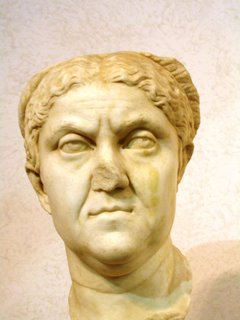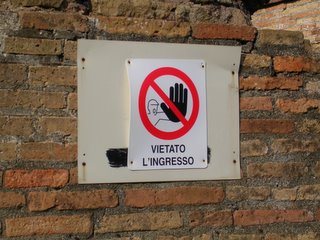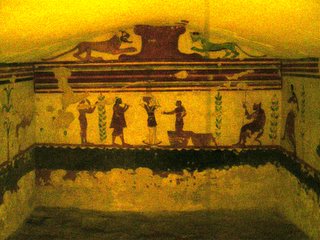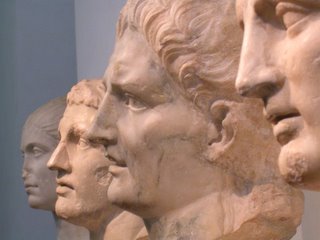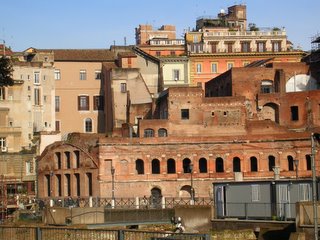
-Today someone was playing a didgeridoo in the Campo.
-I can spell didgeridoo. I think.
-I have discovered the best thing in the world. It's Nutella.
-I ate a Nutella cake last night.
-I can finally say Trastevere without messing it up.
-I had a (really short) conversation all in Italian the other day.
-It has only rained once here. Ha. You're jealous. Yes you are.
-Dane Cook came all the way to Italy with me.
-Sometimes I walk along the Tiber. The real live Tiber River.
-Indian food is really freaking good here.
-You're reading my blog. That's pretty nifty.
-I got to see so many amazing knockyouonyourbum churches this week that I am still a bit faint.
-I get to go to Florence in two days.
-I went to the flea market again this morning and no one tried to pick my pocket like they did last week.
-I say euro correctly. Most of the time. Ayooroh. Or something.
-I bought a hundred stamps today. I'm not even kidding. A hundred.
-Mass in Italian is beautiful.
-If you ask me what time it is I will never be able to tell you. Ever.
-If you ask me what the oldest church ever dedicated to Mary is I will be able to discuss it at length.
-I like dancing, and I'm allowed to do that here.
-Italian guys are crap at dancing. It's funny.
-Sometimes I just walk around. And that is not a boring thing to do.
-Right now you are contemplating the comment you will leave me at the end of this entry.
-I am so pro at haggling now.
-I am also pro at walking on cobble stones.
-I saw a relic this week. Like Indiana Jones.
-I'm sitting in the sun right now.
-Three weeks was long and short at the same time.
-Our dishwasher is broken. I could be doing dishes right now. I'm not, but it's out there as a possibility.
-I'm gonna go get ciocolata calda right now.

